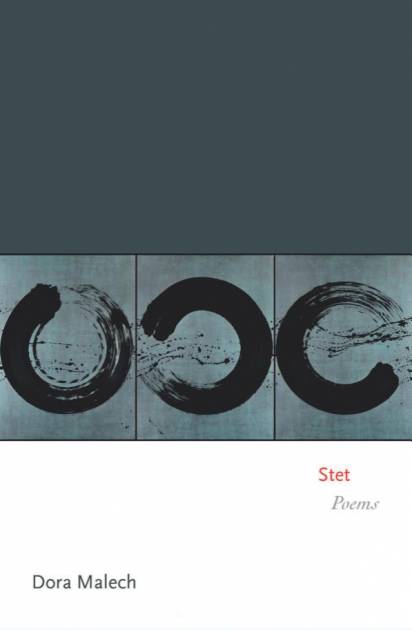"Sometimes we step into something true," writes Dora Malech in her new poetry collection, Stet (Princeton University Press), a line that succinctly captures the surprise wonder to be found in taking the time to unlock these poems' sneaky gifts. With her third poetry collection, Malech, an assistant professor in the Writing Seminars, explores a variety of anagrammatical forms and rhyme schemes in 38 poems. A mischievous sense of wordplay has consistently run through her work, but in Stet conventional syntax and meaning are often sidelined, and every poem can initially feel like trying to solve an acrostic. Many lines are sculpted from anagrams. Entire poems read like whole sections have been redacted. And sometimes the allusions Malech uses can seem esoteric and obscure. A first pass through Stet can feel like trying to cross a stream by hopping from rock to rock in the dark.

Don't be frustrated by Stet's inscrutable surface, as there's a reward for being patient enough to allow Malech's lines to find purchase in the brain. It won't take long. Just as fragmented speech can make sense in conversation but look foreign on the page, there's an improvisational, colloquial spirit in poems such as "Essay as Yes," and "Something Wonderful Is About to Happen to You." They point the brain toward one way to read these poems: Thinking of them as things to hear rather than word games to solve unlocks their musical potency, revealing disarming emotional depths.
A complicated sense of loss courses through poems such as "As[ ]k" and "Daisies Is Ideas," where Malech's use of anagrams suggests a mind record skipping between feelings in lines such as, "flingable alibi set: all in a big life" or "Felt left—," piling emotive ideas atop one another like a painter layering pigments. As you begin to hear her poem's idiosyncratic rhythms, Stet can feel overwhelming, but then you realize these initially inscrutable lines are making sense.
Once you do, you might discover a few poems here are quiet knockouts. "See: erosion" is four lines, nine words total, using only the letters found in the first line: "the wave arrives," with a large space between "wave" and "arrives." She uses fewer of those letters in each line, gradually amplifying the space between the first and last words, creating a visual echo of the title's gradual erasure.
Posted in Arts+Culture
Tagged poetry, book reviews, book review








